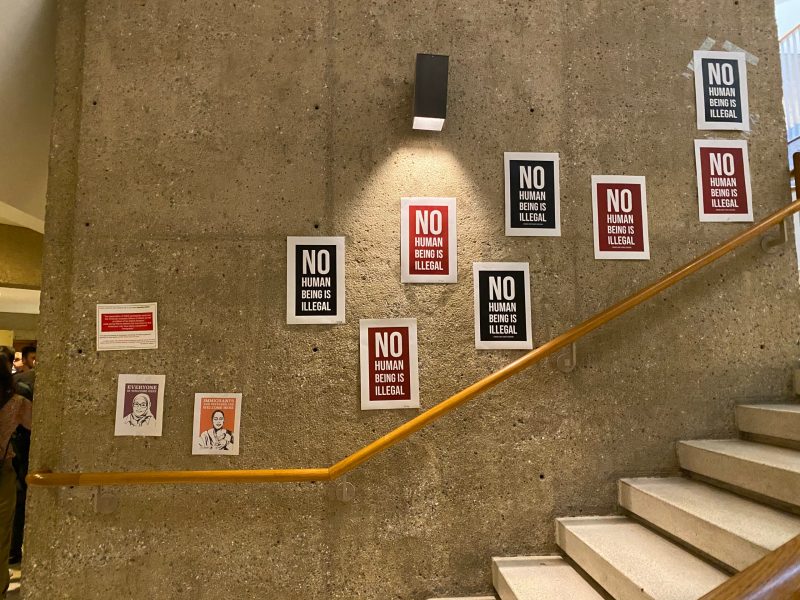Texas Solicitor General Kyle Hawkins was only five minutes into his lecture on Deferred Action for Childhood Arrivals (DACA) litigation when more than three-quarters of his audience got up and left the room.
Hawkins — who holds a powerful post often occupied by conservatives unafraid to sue the federal government — spoke at Stanford Law School on Monday at an event sponsored by Stanford Law’s chapter of the Federalist Society. His talk was set to address the legality of repealing DACA, whose immigration protections President Donald Trump has sought to shoot down since 2017 and whose continued existence is now the subject of a Supreme Court case. Last October, Stanford and 18 other universities filed a joint amicus brief in support of DACA.
So many students had showed up for the walkout that the talk had to be moved to a larger room. The Stanford Latinx Law Students Association (SLLSA), along with 11 other student groups, organized the demonstration, with member Raquel Zepeda condemning the “intellectually cheap and morally affronting topic” of the lecture in an email to law students.
Initially speaking before a packed room of students holding posters reading “No human being is illegal” or “Everyone is welcome here,” Hawkins prefaced his talk by saying that, since there was no planned rebuttal for the event, he would be arguing both sides.
But Hawkins’ track record aligns him with DACA’s legal opponents, and he spent the majority of his lecture explaining the substantive and procedural ways Trump could repeal DACA — emphasizing that he was making a purely legal argument.
“[Trump’s motion] did not say DACA is a bad policy,” he said. “It did not say that DACA was unworkable. … It just says that DACA is unlawful.”
Sidestepping questions of the value and impact of DACA, however, was exactly what those who walked out opposed.
“Purely legalistic discussions of DACA ignore the human element, which must be front and center,” SLLSA and the other groups wrote in a joint statement. “We cannot afford to disregard the presence and importance of DREAMers in all places, including here at SLS.”
Hawkins is successor to Scott Keller, who led the charge to stonewall Deferred Action for Parents of Americans (DAPA) on the grounds that it was unlawful. The Obama-era plan would have protected 4 million immigrants, but a 2016 suit by 26 states, led by Texas, stopped it from ever taking effect.
“DACA is unlawful for the same reason that DAPA was unlawful, according to the fifth circuit,” Hawkins said.
The arguments against DACA assert that former President Barack Obama did not have the power to institute the measure in the first place. DACA “confers on someone a status Congress would otherwise deny,” Hawkins said, including work authorization and lawful presence.
Pivoting to a pro-DACA legal argument, Hawkins said that the Immigration and Nationality Act (INA) grants the executive branch some leeway in enacting the U.S.’s body of immigration law.
“What the folks on the right need to grapple with is that the executive has discretion in enforcing the terms of the INA,” he said.
Some who walked out of the event felt DACA’s legality isn’t even a question at all.
“It’s incredibly unfair that my fellow students have to face these extra burdens and then be reminded of them in school,” first-year law student Zoe Packman said. “We shouldn’t be discussing the legality of our student population. It’s not a valid question, there is no question there.”
Paul Draper, a member of the Federalist Society and a second-year law student, said in his introduction of Hawkins that the organization reached out to 11 professors and experts to find a rebuttal, but that all were either unavailable or uninterested. Protestors didn’t believe the Society made an adequate effort.
“I don’t know who they reached out to, and as far as everyone here is concerned, they didn’t reach out to us,” said first-year law student Kevin Dousa.
The Federalist Society declined to comment, citing internal policy that prevents the organization from granting interviews.
Michael Espinosa contributed to this report.
Contact Julia Ingram at jmingram ‘at’ stanford.edu.
